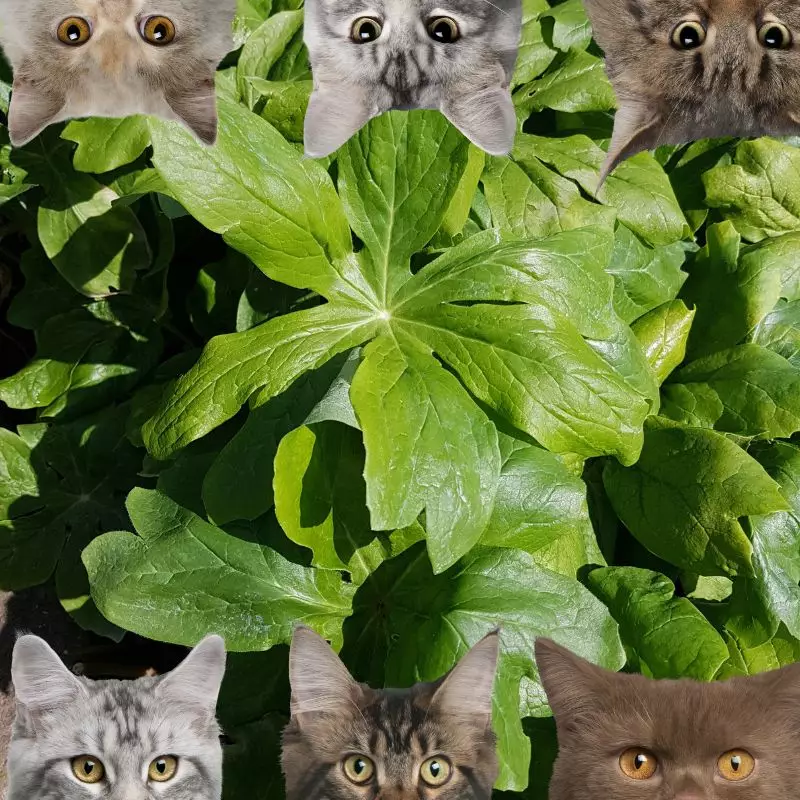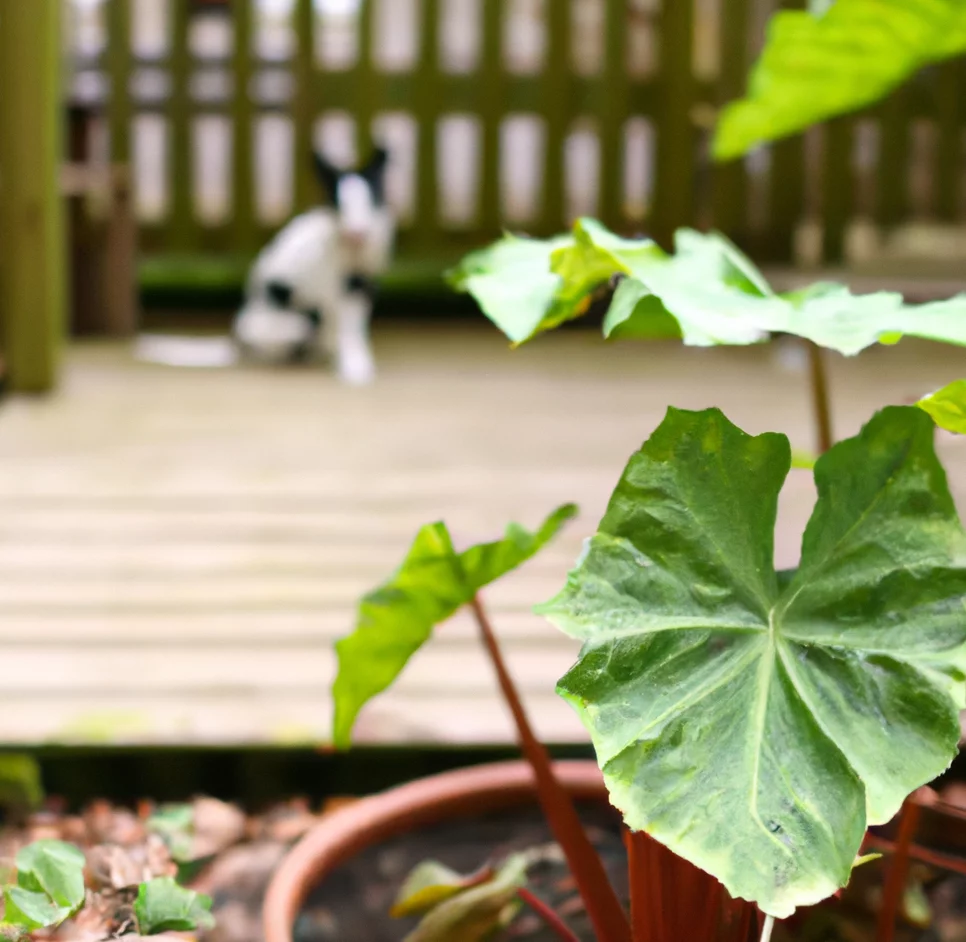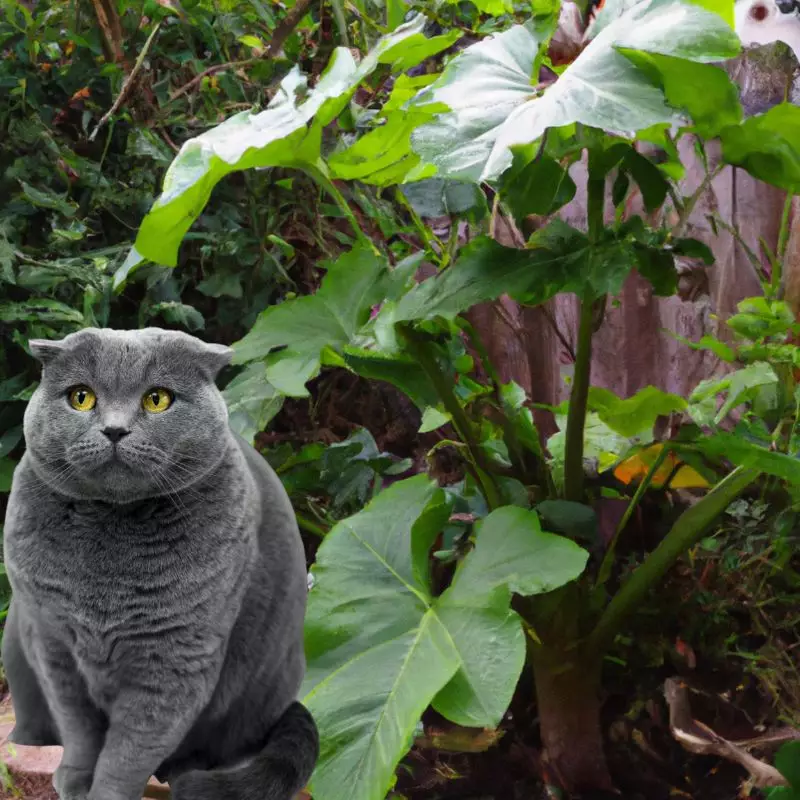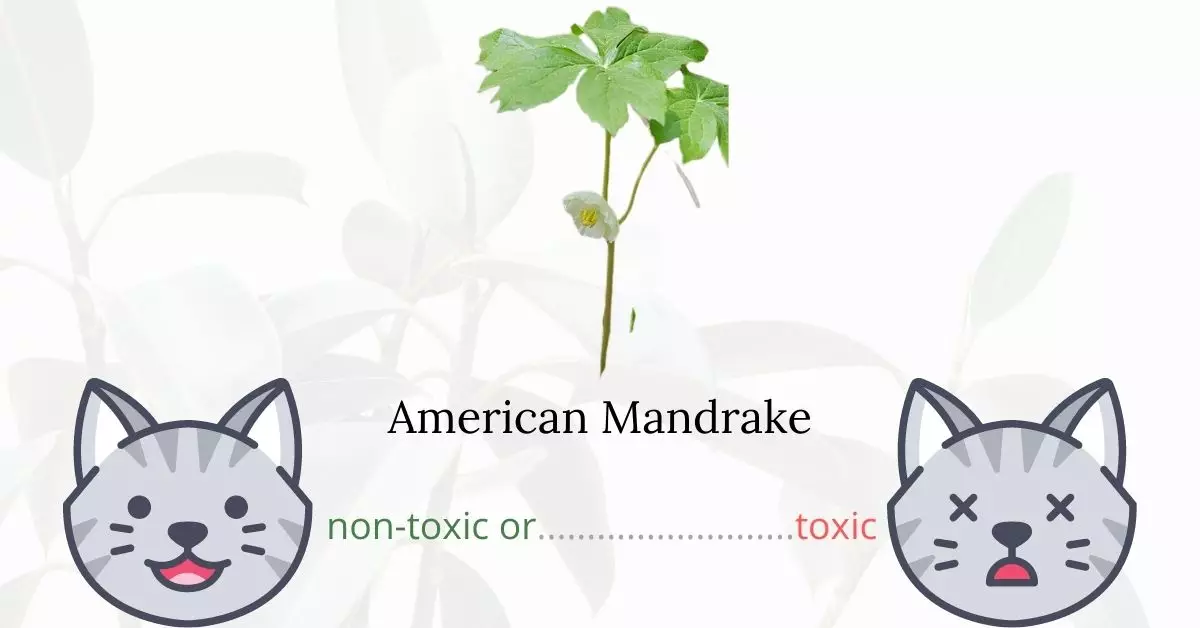Yes, the American Mandrake, also known as Mayapple, is toxic to cats.
This article was penned in collaboration with a team of experienced DVMs (doctors of veterinary medicine). Through their expert insights, we provide accurate and up-to-date information about the potential dangers associated with the American Mandrake and its effects on cats. In addition to our team’s input, we have consulted high-authority websites such as ASPCA and PetMD to ensure comprehensive research on the topic.
The American Mandrake contains potent hallucinogenic tropane alkaloids, notably hyoscyamine, apoatropine, scopolamine, and atropine. Of these, atropine is the primary toxic component posing significant health risks to cats. Once atropine enters a cat’s system, it inhibits the release of the stimulating chemical, acetylcholine, preventing the nerve pulse from being transmitted to the next nerve. This disrupts the parasympathetic division of the central nervous system.
Clinical Signs of American Mandrake Poisoning in Cats

After a cat ingests, smells, or comes in contact with the American Mandrake, specific clinical symptoms emerge due to the plant’s toxic components. The onset of these signs typically begins within 30 to 60 minutes of exposure and can persist for 24 to 48 hours as the toxins work their way through the cat’s urinary and digestive systems.
Here’s a breakdown of the clinical signs and their causes:
- Disorientation: Caused by the disruption of the nervous system’s functions due to the tropane alkaloids, which impede normal neural transmissions.
- Confusion: The toxic alkaloids affect the brain’s cognitive functions, leading to an inability to process and understand their surroundings.
- Delirium: High levels of the toxins in the system can create a state of severe confusion, marked by disrupted attention and a distorted perception of the environment.
- Excessive Elation: Atropine and other compounds can create heightened, erratic emotional responses, similar to the effects of certain drugs on the human brain.
- Hallucinations: Tropane alkaloids can lead to distorted perceptions and hallucinations due to their hallucinogenic properties.
- Unconsciousness: At elevated levels, the toxins can depress the central nervous system to the point of causing the cat to lose consciousness.
- Paralysis of Involuntary Muscles: The atropine in the plant affects the transmission of nerve impulses, leading to paralysis of muscles that function involuntarily, such as those in the heart and lungs.
- Death: In severe cases, the cumulative effects of these toxins, especially if there’s paralysis of vital organs, can sadly lead to death.
If you suspect your cat has been exposed to the American Mandrake, it’s essential to seek veterinary care immediately.
First Aid and Treatment of American Mandrake Poisoning in Cats

The primary goal of treating American mandrake poisoning in cats is to get the substance out of the cat’s system before it causes complete shutdown of involuntary muscles. If the cat is still conscious, the veterinarian will administer vomiting medication; however, if the toxins have rendered the feline unconscious, gastric lavage may be used to empty the stomach. Other treatment options may include administering activated charcoal, oxygen, and fluid replacement therapy.
Recovery from American Mandrake Poisoning in Cats

Death due to American mandrake poisoning is a rare case. As long as the cat received immediate and appropriate treatment from a veterinarian, he or she will fully recover within 24 to 36 hours.
Prevention of American Mandrake Poisoning in Cats
Ensure that your cat is provided with adequate food sources, as most cats will only eat this plant as a last resort. If the American mandrake is ingested, common symptomatic care is most likely all that is required. Prevent further plant ingestion by flushing the mouth with water and consulting a veterinarian.
If you love plants but have cats at home, check out these lists:





